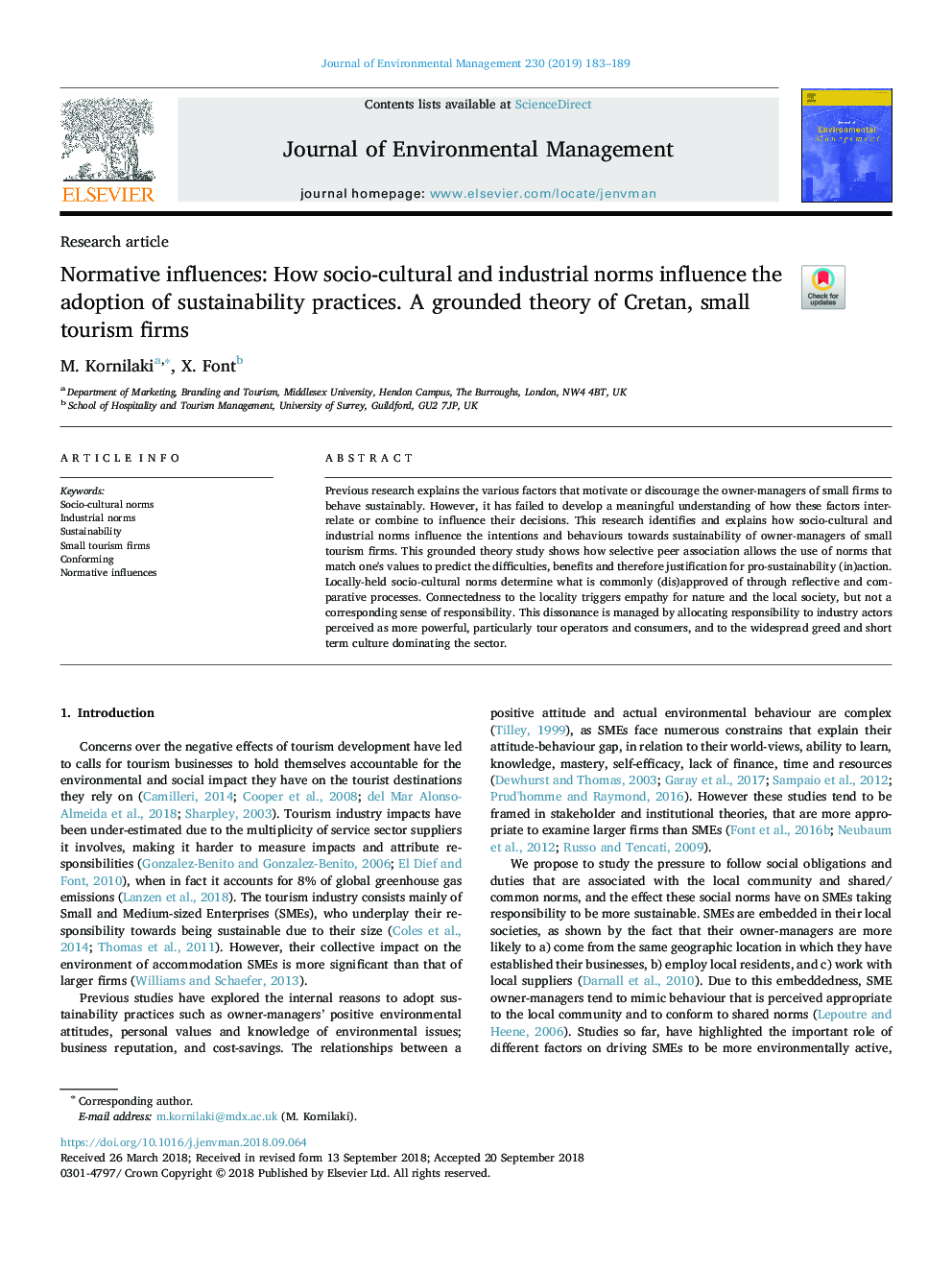| Article ID | Journal | Published Year | Pages | File Type |
|---|---|---|---|---|
| 11023233 | Journal of Environmental Management | 2019 | 7 Pages |
Abstract
Previous research explains the various factors that motivate or discourage the owner-managers of small firms to behave sustainably. However, it has failed to develop a meaningful understanding of how these factors inter-relate or combine to influence their decisions. This research identifies and explains how socio-cultural and industrial norms influence the intentions and behaviours towards sustainability of owner-managers of small tourism firms. This grounded theory study shows how selective peer association allows the use of norms that match one's values to predict the difficulties, benefits and therefore justification for pro-sustainability (in)action. Locally-held socio-cultural norms determine what is commonly (dis)approved of through reflective and comparative processes. Connectedness to the locality triggers empathy for nature and the local society, but not a corresponding sense of responsibility. This dissonance is managed by allocating responsibility to industry actors perceived as more powerful, particularly tour operators and consumers, and to the widespread greed and short term culture dominating the sector.
Related Topics
Physical Sciences and Engineering
Energy
Renewable Energy, Sustainability and the Environment
Authors
M. Kornilaki, X. Font,
